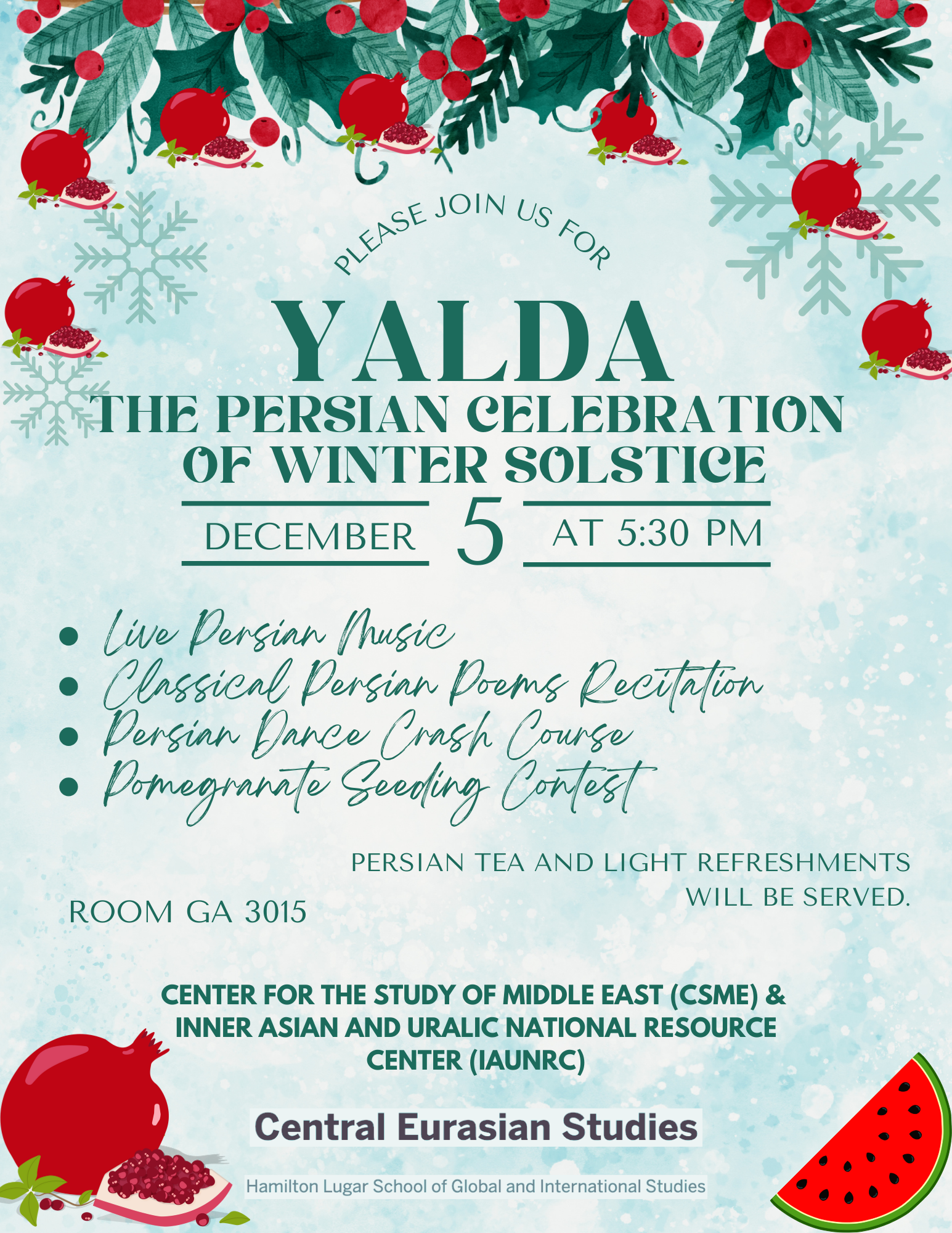On December 5th, 2024, the Persian program in the Department of Central Eurasian Studies, the Center for the Study of the Middle East, and the Inner Asian and Uralic National Resource Center hosted a celebration for the Iranian holiday of Yalda. Professor Narges Nematollahi and Professor Hewa Khalid of the Department of Central Eurasian Studies taught the audience about Iranian and Kurdish customs of the celebration of the holiday, respectively. Activities included a slideshow and presentation about the history of the holiday, traditional foods of Yalda, cloving an apple (Kurdish tradition), reading the poetry of Hafez, a pomegranate seeding contest, a musical performance of the Persian tar and Yalda songs, and a dance lesson of traditional Persian and Kurdish dances. Dancing and conversation in Persian lasted through the evening.
While we celebrated Yalda on the 5th, the actual holiday is not until December 20th, since it is a celebration of the winter solstice. It is celebrated in Iran, Tajikistan, Afghanistan, Kurdistan, Turkey, Azerbaijan, Dagestan, as well as by diasporas in the US and Canada. Yalda marks the longest night of the year, and its history dates to Achaemenid times (550 BCE – 330 BCE). The word “Yalda” is actually a loanword from Syriac, likely borrowed from Syriac Christians’ word for Christmas. Traditions include staying up all night, spending time with family, eating pomegranates, nuts, watermelon, and dried fruit, and getting one’s fortune read through opening a random page of the book Divan by Hafez, a famous Classical Persian poet.


